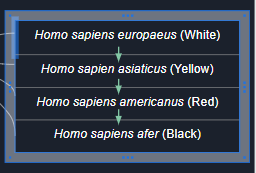I attended an interesting “anti-racist” workshop the other day. In this workshop, the onus of identifying racist behaviors was placed on people of color. In fact, people of color were told that it was their responsibility to hold even their supervisors accountable for racist behaviors. In other words, they took the Civil Rights Movement of 2020 that had been ignited with George Floyd’s murder and changed it to become another opportunity for victim blaming. Why do I interpret their actions this way? Let’s define victim blaming and then talk about just how problematic holding people of color responsible for others’ microaggressions is.
Victim blaming is “questioning people who experience violence about their actions, and what they could have done to prevent it.” The term is used often for those who experience sexual violence, homelessness, homicides, and poverty. Statements used in victim blaming may include, “The way she dressed, she invited his attack,” “If only they would work harder, they could escape poverty,” or “Who told him to walk in the park at night?” It takes the responsibility and accountability of the crime off of the perpetrator and places it upon the victim.
Similarly, placing the onus of identifying racist abuse on people of color absolves people with racial power (those higher on the racial hierarchy) from the responsibility to self reflect on their own practices. The victim blaming statement here is, “Well if she had just said something, she wouldn’t have had to continue to experience those microaggressions.” Instead, it should be the responsibility of each of us, regardless of race, to analyze our own behaviors rather than wait for someone else to identify our racist attitudes and biases. For instance, minoritized individuals must consider how much they are engaging in antiracist behaviors versus how much they are trying to assimilate or force others in their affinity group to assimilate (Kendi, 2019 ). Similarly, white individuals must analyze if their actions or in some circumstances, failure to act, has hurt others who have less racial privilege. And of course, those with varying degrees of racial power, (eg. White passing individuals, those in the middle of the racial hierarchy as seen in the diagram below, etc.) must both reflect upon the racism they turn inwards and the racism they may perpetuate against people with less racial power. To be clear, while there is nothing wrong with seeking feedback from minoritized individuals, a minoritized individual not verbally identifying racist behaviors does not in any way free an individual from the responsibility of confronting their own biases and biased actions.

Next, placing the onus of identifying racist behaviors on minoritized individuals disregards the real impact of racism. Minoritized individuals need to feed their families just like everybody else. Identifying their supervisors’ racist behaviors, or even colleagues’ racist behaviors, can indeed cost individuals their jobs and/or make it difficult to find new ones. Of course, to be fair, not every supervisor would react so cruelly, but repeated identification of racist behaviors could still label a minoritized individual as an “angry black/brown man/woman/individual,” building them a reputation that could hinder their perceived job performance and growth. Furthermore, it is tiring for minoritized individuals to not only have to endure racist abuse but to have to fight against it every – single – time. This is where the white apprentice should take over in being willing to call out the racism that they witness, in self reflecting upon their own behavior, etc.
This is not to say that minoritized individuals should not identify racist behaviors. In fact, it is the responsibility of those with racial power to ensure that those who are minoritized feel safe to do so. People with racial and positional power should let subordinates and/or students know that the workplace/school environment is a safe place to voice concerns and that listening to these concerns is not just a performative measure… that people with the power to make changes will reflect and look for ways to make the situation and/or environment more anti-racist. Those with racial and positional power should ask for and seek feedback, knowing however, that for the reasons listed above, they may or may not receive it. However, when people of color identify the racism they face, it is important for those who have committed the microaggression or those who have the positional power to enact change to listen and reflect upon the feedback.
As the initial awakening of 2020 fades and the antiracism movement tries to warp itself into a performative gesture, we must be wary of the changes we see in the movement. Anyone who places the onus of identifying racist practices on those impacted is engaging in victim blaming. We must be careful not to fall into that trap.
